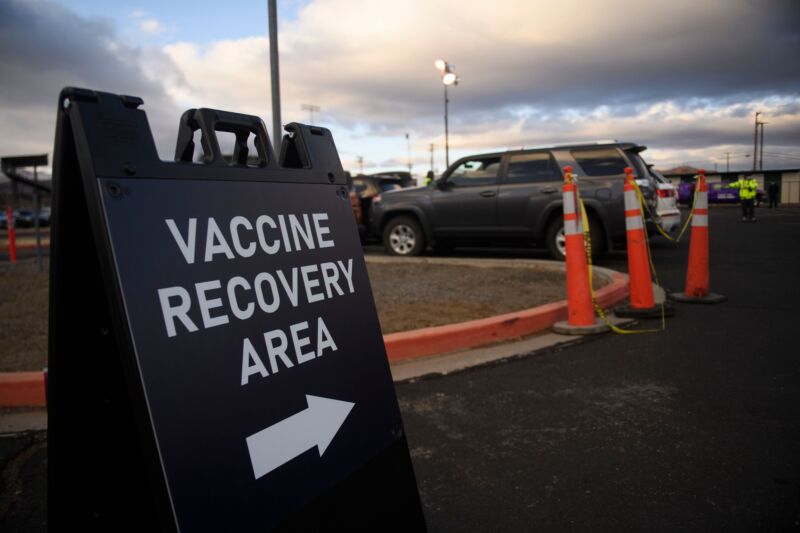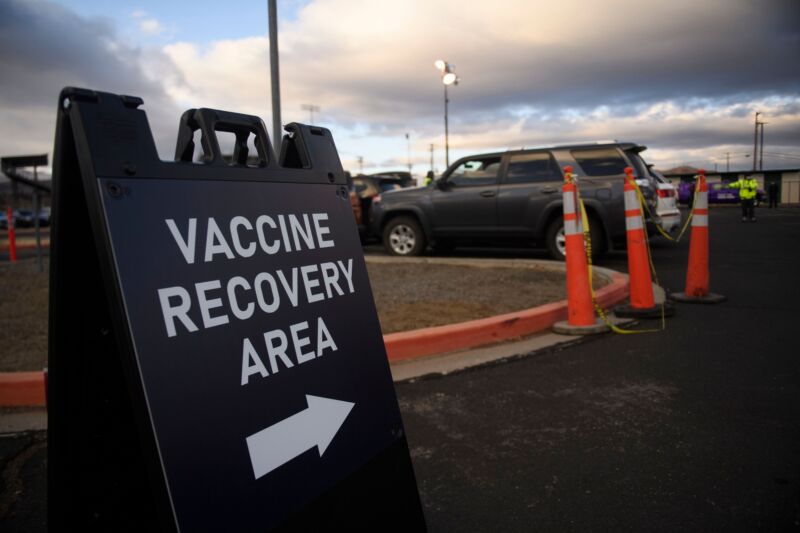
Enlarge / A drive-up COVID-19 vaccination site from Renown Health on December 17, 2020, in Reno, Nevada. (credit: Getty | Patrick Fallon)
Even before their rollout, a distinct feature of safe and effective COVID-19 vaccines has been their “reactogenicity“—that is, their tendency to cause mild symptoms that signal immune responses firing up after a shot, particularly the second one. As vaccine supplies unfurled in the US last year, families, friends, and coworkers swapped stories of their harrowing post-jab days, often recalling fevers, chills, fatigue, and general crumminess.
Although those experiences are unquestionably real, their connection to the vaccines may not be. As more and more results from randomized-controlled vaccine trials hit science journals, researchers kept noting that, while trial participants often reported mild symptoms after shots, so too did the participants who received placebos—and not at trivial levels.
People are often familiar with “placebo effects,” which is when an inert intervention leads people to report health benefits that couldn’t possibly have been caused by the faux treatment. Placebo effects are well-documented and real—in that people can indeed experience a certain extent of psychosomatic benefits. A placebo will not treat serious medical conditions, such as cancer, but it could, for example, lead people to feel they have more energy or less general discomfort.




